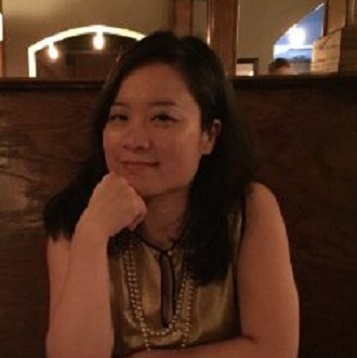杨丽凤
副教授,态度研究实验室PI
| 研究领域 消费者行为学,消费者心理学; 品牌策略;营销行为的效应及影响 联系方式 |
个人简历
2017.1起中国,上海科技大学创业管理学院, 副教授
2011.7-- 2016.12 美国,密西西比大学工商管理学院市场营销系, 常任轨制助理教授/博士生导师
*已毕业博士 Katharine Howie (Ph.D. 2016),现加拿大Lethbridge大学卡尔加里校区商学院
助理教授
*曾指导博士生Katarina Hills (Ph.D. 2014),现美国阿肯萨斯州立大学商学院助理教授
2006.9 – 2011.6美国, 俄亥俄州立大学Fisher商学院, 市场营销系研究员/商学院市场营销消费者行为学(本科课程)讲师
2005.1--2006.5美国, 伊利诺伊大学香槟分校心理学系助教.曾协助教学:
*发展心理学研究方法(本科课程)
*心理学统计方法(本科课程)
*心理学统计方法 (研究生课程)
2003.8—2004.12 美国, 伊利诺伊大学香槟分校应用语言学系英语二语习得/教育所, 研究助理;
主要研究内容
杨丽凤博士主要研究消费者行为心理学。杨博士的态度研究实验室(Attitude Research Lab)当前侧重于研究人们对品牌,市场,企业,以及政府在信息推广中涉及的各种营销推广行为的态度,心理,及行为表现。当前研究项目包括各种品牌(Branding)策略,说服(Persuasion)策略,广告措辞(Framing)效应,人喜好与厌恶并存(Ambivalence)的矛盾态度,以及赞助营销行为(Cause-Related Marketing)效应。
代表性论文
研究成果I:代表性学术会议论文(*为所指导的博士生)
1. Cinelli, Melissa D. and Lifeng Yang (2016), “The Role of Implicit Theories in Evaluations of ‘Plus-size’ Advertising,” NA - in Advances in Consumer Research, Volume 44, eds. Page Moreau and Stefano Puntoni, Duluth, MN : Association for Consumer Research.
2. Howie, Katharine* and Lifeng Yang (2015), “Is Less More for Cause-Related Marketing,”NA - in Advances in Consumer Research, Volume 43, eds. Kristin Diehl and Carolyn Yoon, Duluth, MN : Association for Consumer Research.
3. Howie, Katharine* and Lifeng Yang (2014), “Consumer Participation in Cause-Related Marketing,” NA - in Advances in Consumer Research, Volume 42, eds. June Cotte and Stacy Wood, Duluth, MN: Association for Consumer Research.
4. Yang, Lifeng and Katharine Howie* (2014), “Positive Effects of Misfit in Sponsorship Relationships: When Misfit Benefits the Brand,” NA -in Advances in Consumer Research, Volume 42, eds. June Cotte and Stacy Wood, Duluth, MN: Association for Consumer Research.
5. Cinelli, Melissa M. and Lifeng Yang (2013), “Estimate Precision,”NA - in Advances in Consumer Research, Volume 41, eds. Simona Botti and Aparna Labroo, Duluth, MN: Association for Consumer Research.
6. Easwar, Karthik and Lifeng Yang (2012), “The Language of Advertising: Examining the Benefit of Construal Matching,” NA - in Advances in Consumer Research, Volume 40, eds. Zeynep Gurhan-Canli, Cele Otnes, and Rui (Juliet) Zhu, Duluth, MN: Association for Consumer Research.
7. Yang, Lifeng and H. Rao Unnava (2011), “When Ambivalence Increases Attitude Behavior Correspondence,” NA - in Advances in Consumer Research, Volume 38, eds. Darren W. Dahl, Gita V. Johar, and Stijn M.J. van Osselaer, Duluth, MN: Association for Consumer Research.
研究成果II:学术期刊论文(*为所指导的博士生)
1)Howie, Katharine*, Lifeng Yang, Scott Vitell, Victoria Bush and Douglas Vorhies (2018), “Cause-Related Marketing with Consumer Participation and the Reactance Response,” Journal of Business Ethics, 147(3), 679-92.
2)Yang, Lifeng, Scott Vitell, and Victoria Bush (2017), “Unethically Keeping the Change While Demeaning the Act,” Journal of Consumer Marketing, 34(1), 11-19.
3)Cinelli, Melissa D. and Lifeng Yang (2016), “The Role of Implicit Theories in Evaluations of ‘Plus-size’ Advertising,” Journal of Advertising, 45(4), 472-81.
4)Yang, Lifeng and H. Rao Unnava (2016), “Tipping the Purchase with Implicit Priming: Influencing the Behaviors of Ambivalent Consumers with Valenced Primes,” Journal of Marketing Theory and Practice, 24 (4), 442-61.
5)Yang, Lifeng and H. Rao Unnava (2016), “Preference for Negative Reviews When Forming Attitudes: The Moderating Role of Ambivalence,” Psychology and Marketing, 33 (5), 331-43.
6)Bush, Victoria D., Lifeng Yang, and Katerina E. Hill* (2015), “The Ambivalent Consumer: A Sequential Investigation of Response Amplification in Buyer-Seller Encounters,”Journal of Marketing Theory and Practice, 23, 402-14.




